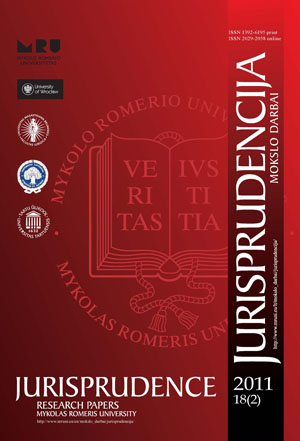Alternatyvaus ginčų nagrinėjimo raida, teisinė padėtis ir reglamentavimas
Development of Alternative Consumers and Business Dispute Resolution and their Reglamentation
Author(s): Feliksas PetrauskasSubject(s): Law, Constitution, Jurisprudence
Published by: Mykolas Romeris University
Keywords: alternative dispute resolution; consumer; business; institutions; the State Consumer Rights Protection Authority of the Republic of Lithuania; disputes
Summary/Abstract: Out-of-court proceedings or alternative dispute resolution (ADR) is a peaceful, voluntary alternative method for settling disputes without litigation in the court. ADR institutions usually use a third party to help the consumer and the trader reach a solution. The main purpose of this article is to share the main insights and experience about the out-of-court proceedings in various countries and present main trends of ADR development. First of all, in this article, ADR is presented and its main advantages or disadvantages, main reasons of its origin are outlined. For example, ADR institutions are indeed a low-cost and quick alternative for consumers to settle disputes with businesses. These are the main reasons why ADR originated and developed so fast in the United States of America. Secondly, it is important to analyse various definitions used to describe ADR and its characteristics, because it is a very complicated and complex phenomenon. ADR and the principle of legal accessibility are also very closely related issues which are deeply analysed in this article. Also, the article is dedicated to analysing the consumer dispute settlement procedure and its stages, disclosing the main problems related to out-of-court proceedings (for example, a short period of litigation, institution decisions that have the character of non-binding recommendation, lack of information) in the State Consumer Rights Protection Authority of the Republic of Lithuania, presenting recent data of complaints and decisions adopted by the above mentioned Authority, as well as suggestions of how the rising problems and obstacles can be solved at the national level.
Journal: Jurisprudencija
- Issue Year: 18/2011
- Issue No: 2
- Page Range: 631-658
- Page Count: 28
- Language: Lithuanian

